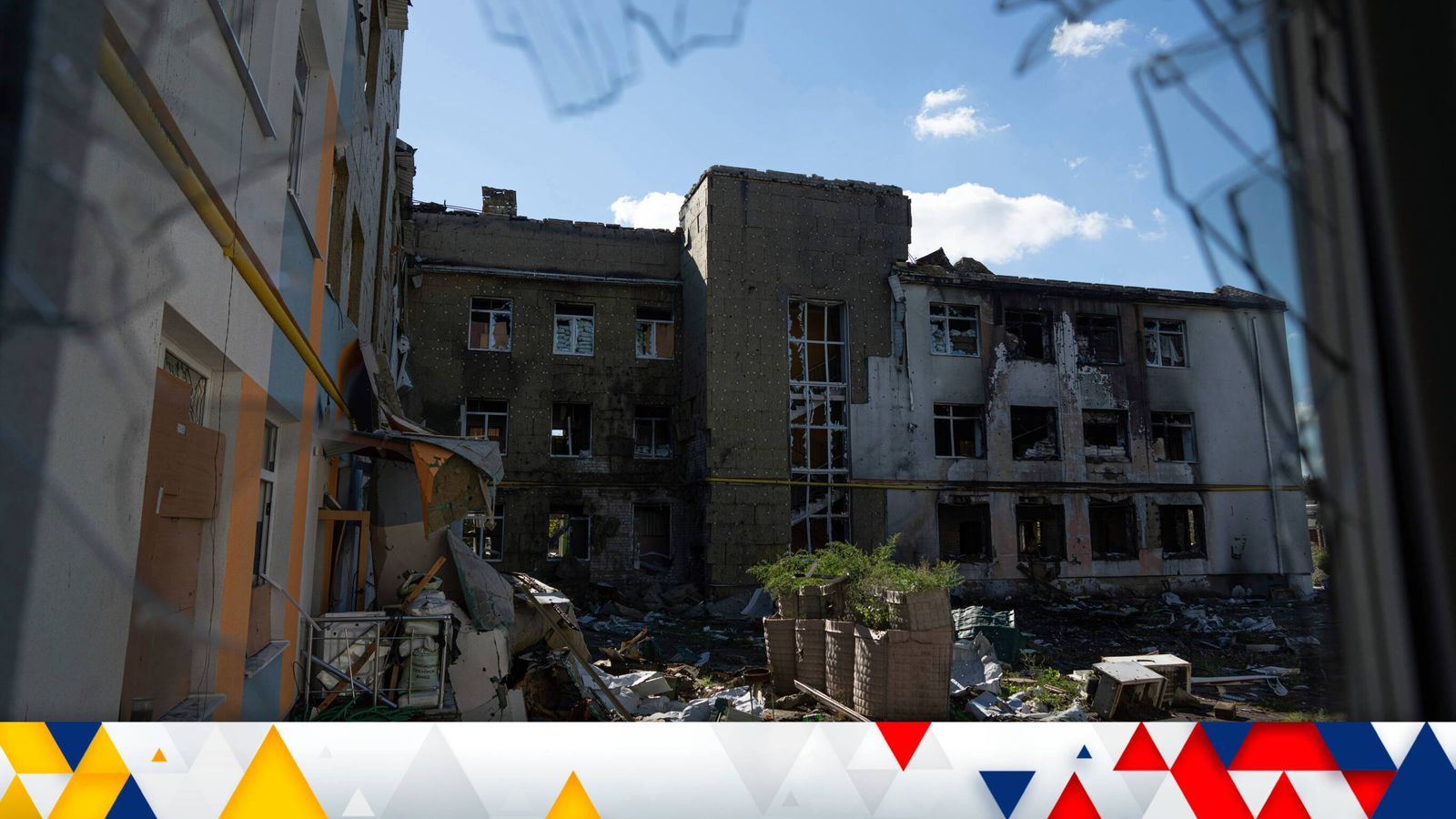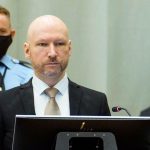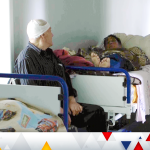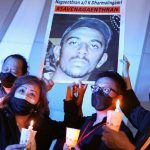Hundreds of Ukrainian children remain stranded at Russian holiday camps, with one mother forced to hitchhike into enemy territory to rescue her daughter.
The Russian occupation radio and newspaper adverts promoted a summer break away from the war, free of charge.
Hundreds of families in the occupied east and south agreed.
One bus convoy left Izyum at the end of August, with the promise that the children would return home in time for the school year.
Instead, Ukrainian forces swept though in early September, driving the Russians into a disorganised retreat and liberating territory that had been in enemy hands for months.
Ukraine latest news: Putin ‘faces imminent defeat’ in area he’s about to declare part of Russia
Fifty-two children – aged between nine and 16 – from Izyum and 250 more from other towns in the Kharkiv region are now scattered in camps.
Finland to ban Russian tourists over fears of ‘endangering international relations’
Four Ukrainian regions that held ‘referendums’ to be incorporated into Russia on Friday, says Kremlin
Fourth leak revealed on Nord Stream pipelines as Russia denies sabotage
Last week, Sky’s Deborah Haynes spoke to the parents in one village who are now desperately trying to locate their children.
“Our main goal was to give the children a break from everything that was happening here, from all the horrors that were here,” said Valeriya Kolesnyk, an Izyum teacher whose nine-year-old is now in Russia.
“The problem is that the Russian side does not plan to return the children to us.”
She had sent her elder daughter to a camp in July and she returned home with no complications. But the sudden shifting of the front lines changed everything.
Please use Chrome browser for a more accessible video player
‘We will burn your country to ash’
One mother hitchhiked to Zaporizhzhia, got permission from Ukrainian authorities to cross into Russian-controlled territories, made her way to Crimea and across to Russia, all the way to Gelendzhik, the seaside resort town where many of the children remain to this day.
There she found her daughter, but camp authorities refused to give her permission to take her daughter away. They told her: “We will not allow you to take your child to Ukraine.”
She signed a document promising to stay in Russia, picked up the girl, and managed to get them both out the same way she came, through the occupied territories, the war zone, and back to Ukraine.
Russian soldiers spoke harshly at the checkpoints, but let them through, said the woman.
“We will burn your country to ash,” the woman said the Russians told her. But she managed to get herself and her teenage daughter back to Izyum.
Her daughter told her that 300 children from territories recently reclaimed by Ukraine remained behind.
Fear of being seen as collaborators
About two dozen parents gathered on Wednesday outside a closed cafe in Izyum overlooking one of the town’s countless bombed-out buildings. Desperate, angry, and almost crazed with worry, they say they need more help to retrieve their kids.
They are afraid they are seen as collaborators, willing participants in handing their children over to the enemy.
“We are simple people. We could never afford a seaside holiday for our children and we saw this as a chance,” said one Izyum father who has a nine-year-old child among the group.
The group said the Izyum couple who organised the trip now tell them that Ukraine is too dangerous for children. The couple is planning a permanent future in Russia.
“I’m not going back,” said the husband, Valeriy Polyvoda, reached by phone in Russia. Mr Polyvoda blamed the children’s plight on local authorities in Russia. He refused to say how many children were with him.
Yuri Kovalenko, deputy director of one camp in Kabardinka, confirmed the Ukrainian children were there but refused to say how many. Another facility, Yeysk, also confirmed the presence of Ukrainian children but refused to provide more information.
The families who gathered on Wednesday wrote out a list of their names and contact information. But phone service has been down for six months in Izyum and communications are hit-or-miss.
Subscribe to the Daily podcast on Apple Podcasts, Google Podcasts, Spotify, Spreaker
Most families talk periodically to their children using some of the satellite internet hotspots that the Ukrainian government has set up, but it’s difficult for the younger ones, said the father of the nine-year-old.
As far as they can tell, the children are basically fine, their needs provided for. They are following the Russian school curriculum. They have food, clothes, and shelter.
But they are without their families.






















